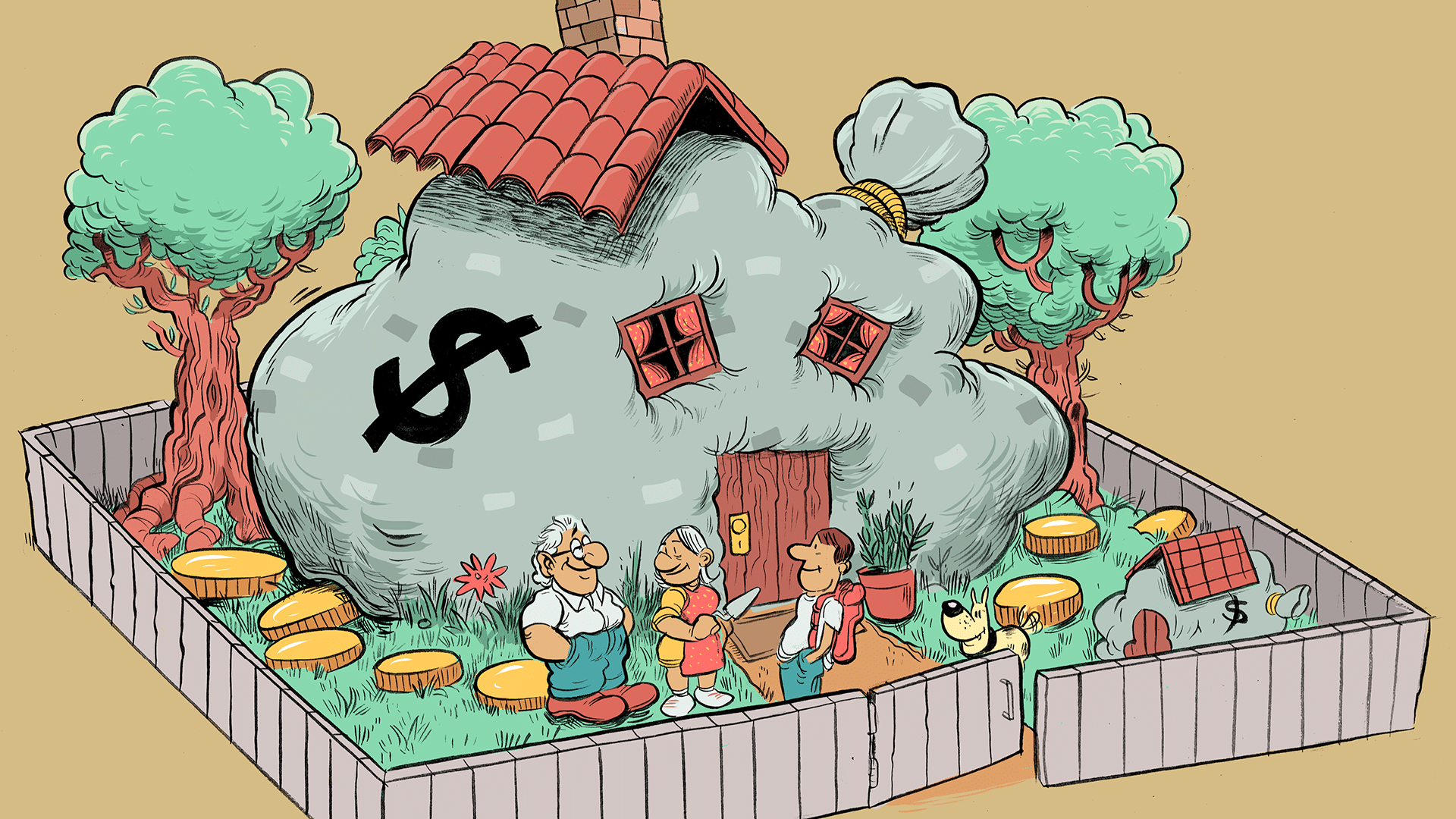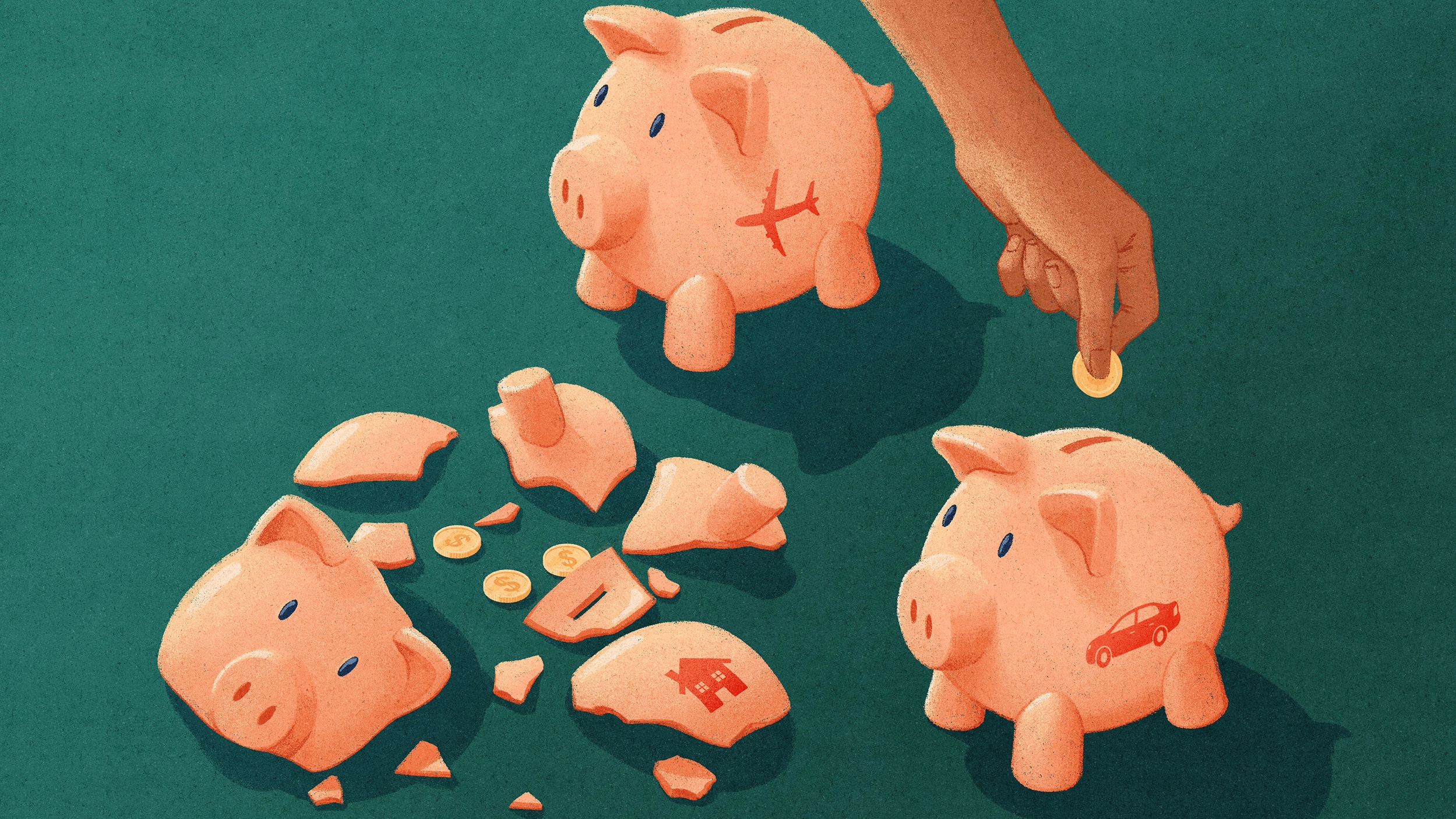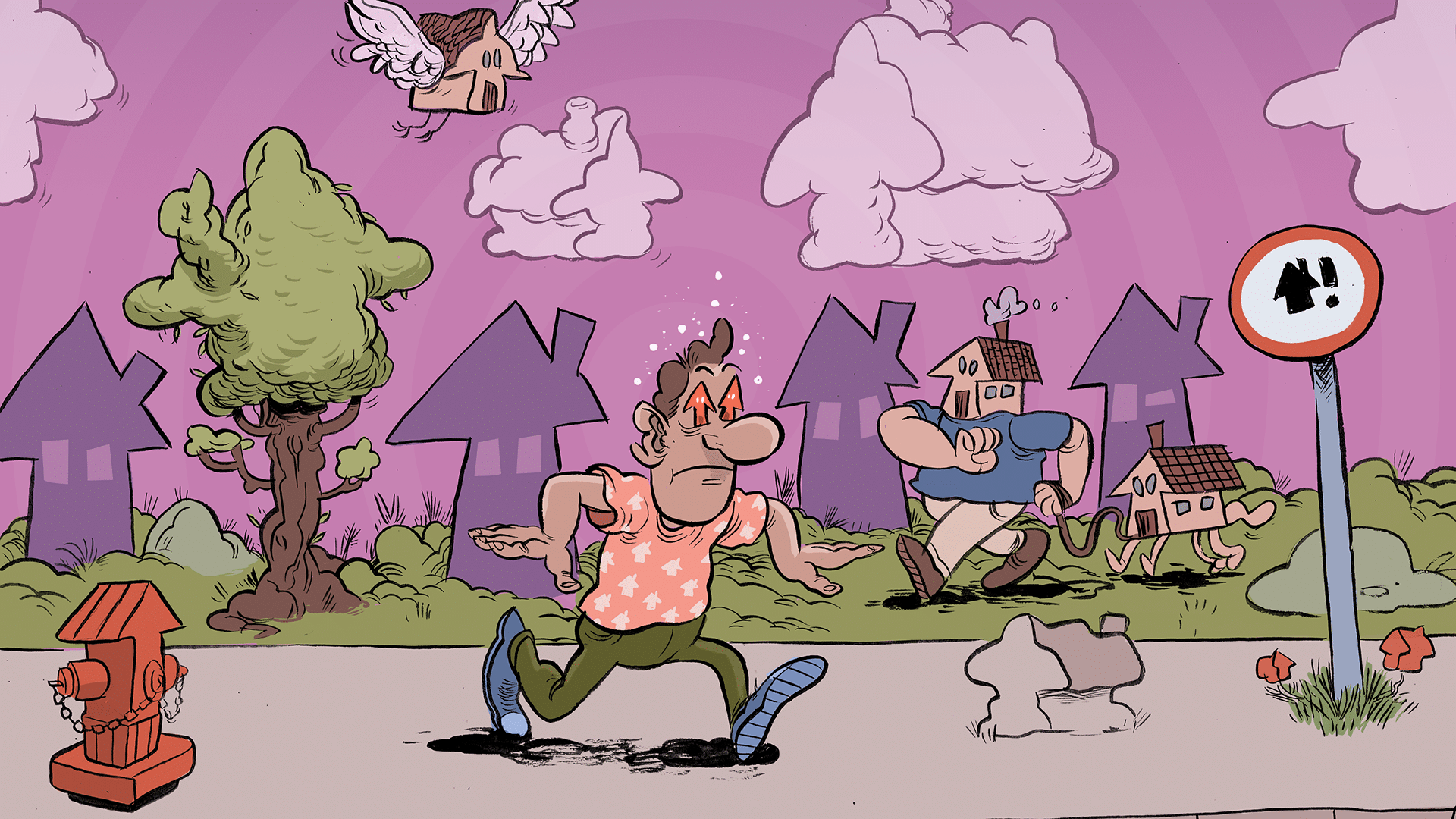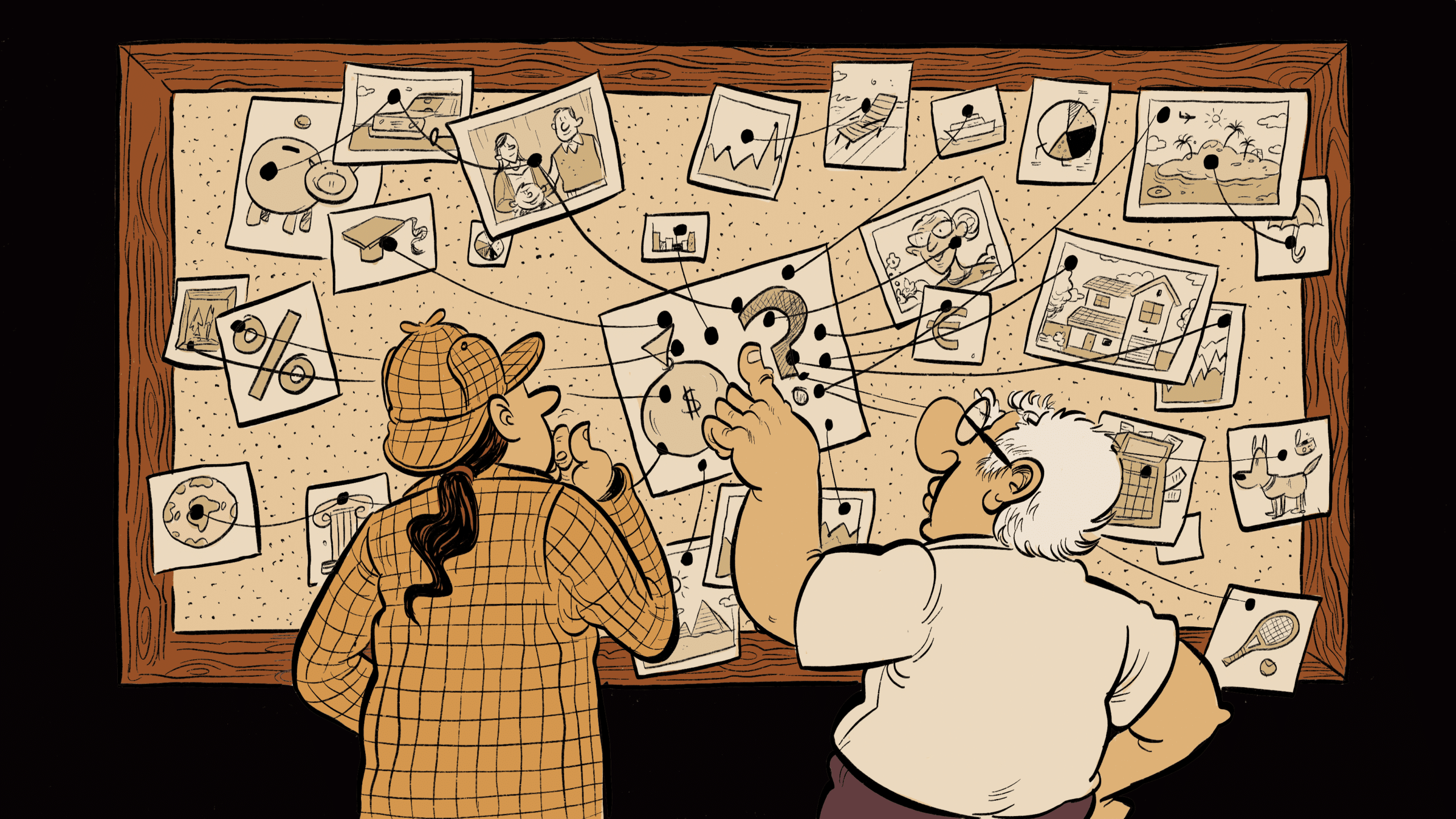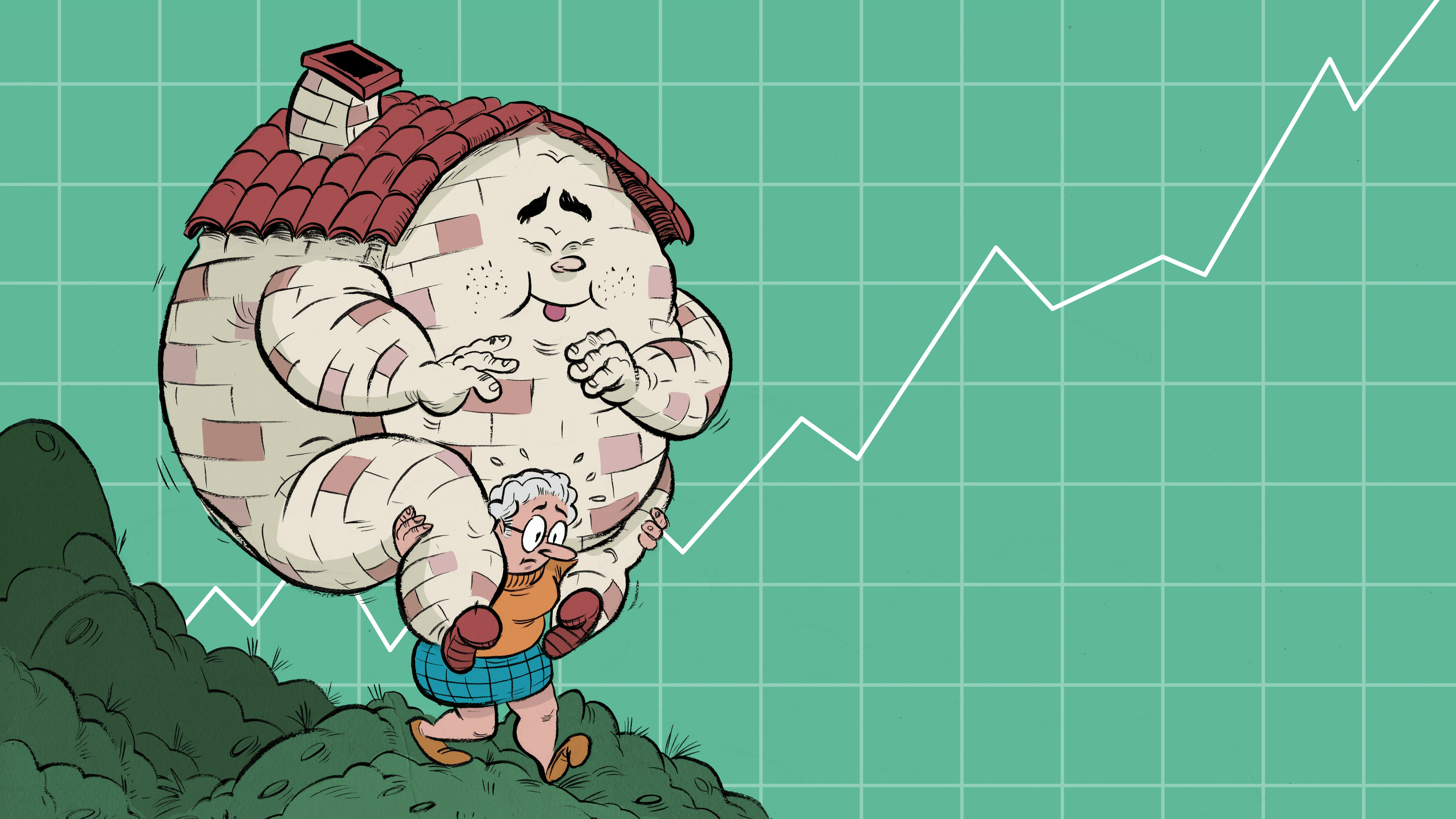
Me and My Big Fat House
Whether through luck or longevity, many Canadians nearing retirement are living in homes that may be worth double what they paid for them 10 or 20 years ago. Even with recent dips in the market, these paper millionaires may be asking themselves: Should I stay or should I go?
Originally published October 2018. Information has been updated.
Sometimes Raina* thinks she’ll sell her home. When she hears how much other houses in her area have gone for — potentially double what she paid for hers — it’s hard not to wonder what’s possible. But she’s conflicted and she’s taken to writing down the pros and cons for selling.
Selling: With her retirement on the horizon, a sale could set her up financially for decades; she could help pay down her kids’ student debt and get them into the housing market; she wouldn’t have to shovel snow or climb the stairs in her old home anymore.
Staying: Over the long term, her home’s value should keep rising; she could use the future value to fund her own medical expenses down the line; her kids and her own aging parents would always have a place to stay if they needed it.
Complicating her decision are future real estate prices — will they rise or fall?
Raina can be forgiven for being at a crossroads over what to do with her house. If you are lucky enough to own a home in most urban areas of Canada, you may have benefitted from higher real estate values over the past 20 years. And while values may have dipped in response to rising interest rates over the past year, few topics are hotter than house prices in our economy.
Yet, the big fat elephant in the room might just be what to do with that big fat house. Where does a home’s value fit into your retirement equation? Especially when you’re looking at possibly doubling (or more) the money you paid for it somewhere down the line? If the real estate market has made you a millionaire (if only on paper) does that mean you are now free of financial worries? Or does the windfall just make things more complicated?
Here are some questions on Raina’s mind and some things to think about if you’re in a similar situation.
How does the increased value of my home impact my retirement plans?
Natasha Kovacs, Senior Financial Planner, TD Wealth, says that while people may be able to enjoy the potential benefits of a boon in real estate, they shouldn’t let their home’s value blind them to financial planning basics. Higher house prices can mean more money in your pocket when you sell, but it may also mean higher rents or purchase prices in the event that you’re looking to downsize, even in markets far from an urban centre.
Can I afford to retire earlier or to live a better lifestyle because I can count on my home’s value to sustain my retirement?
Steve Inskip, Region Head, TD Wealth, says that the timing of retirement is a personal decision based on where people are in their life, their career, their health status and what their goals are for the next stage of life. He points out that, regardless of the value of a home, stopping a regular salary and living on savings can mean more money going out than in, and that factor may have a greater impact on retirement. He says people shouldn’t make the decision to keep or offload the big fat house without considering other factors that may make retirement successful, such as having the ability to pay bills well into old age or leaving an inheritance for your children.
My home has turned into a valuable — and growing — asset. Is it unwise to sell if its price tag is expected to increase?
Inskip says people can enjoy the potential benefits the real estate market can bring, so long as they don’t carry false assumptions that might sweep away other concerns. He mentions that people may want to avoid pinning a future sale value on a home or basing a retirement strategy on a single asset. He points out national and local markets fluctuate (as we’ve seen this year), interest rates can waver and broader economic themes or government regulations can interrupt the housing market. He also notes that people may want to avoid hanging onto a home if you physically can’t keep up with the maintenance.
I’m not ready to sell my home but I would like some more cash now. Is it a good idea to use a line of credit? Go into debt, but pay it off when I do sell?
Kovacs offers a good general rule that people may want to consider: It’s usually best to enter retirement debt-free and not let funds earmarked for retirement pay for the expenses from your working life. She says those who have access to lines of credit should recall that these loans aren’t like an ATM; borrowing money isn’t free and, if you’re already in debt, borrowing more money isn’t likely to make the situation better. Moreover, with high interest rates, you may end up paying more on the line of credit than you expected. However, Kovacs adds that as long as other aspects of your financial plan are sound, and you have robust financial goals, using a line of credit can help ease the house-rich/cash-flow-poor syndrome in the short term, if deemed appropriate.
Downsizing to a smaller, less expensive home seems straightforward. Am I missing something?
Kovacs says that downsizing to a smaller home, perhaps in a less expensive market, is a course many homeowners take. There are also other factors to consider. For one, selling the beloved family home with its memories may be an emotional undertaking, so the family should make sure they sell only when they feel ready. While moving into a new neighbourhood or town may seem like a simple financial transaction, leaving friends and familiar surroundings, not to mention doctors and healthcare professionals who know your history, is something people should weigh carefully, especially in their senior years.
Additionally, Kovacs says people should consider the costs associated with moving which includes legal and land transfer fees and, if you’re headed for a condo, monthly fees.
I’ve got a home that’s benefitted from high real estate prices, but I know my kids have got the short end of the stick. Even if they are successful, it seems like you have to be wealthy just to buy a middle-class home anywhere near a major city these days. Can I help them?
Because markets have changed considerably in major cities over the past few decades, Kovacs says that people may have to set their expectations lower for homes if they’re hoping to secure that quick commute. However, she adds that lower prices may be found just outside of these specific areas. This year, for example, we’ve seen a significant drop in prices for cities and towns on the outskirts of major metropolitan hubs, such as Hamilton, Ont., and Chilliwack, B.C. 1
For parents wanting to help their kids out with a down payment or other large purchase, there are several options to consider when transferring wealth. However, Kovacs says that while helping out your kids is a great sentiment, you might end up needing funds for yourself down the line. She says it’s best to make any cash gifts part of an encompassing financial and estate plan.
How can I avoid becoming a burden for my children even if I don’t know exactly what to save for?
Kovacs says that one of the things people should keep in mind is healthcare costs in the future. She says that while basic healthcare is covered in Canada, people may want to consider how they might pay for other costs like in-home nursing or a bed in a seniors’ facility as they age. It’s with these future costs in mind that Kovacs says individuals may wish to allocate the proceeds from the eventual sale of their home to future healthcare costs.
Inskip reiterates his message of caution: Relating the value of your home to your retirement may be the wrong way to go about making one of the biggest financial decisions of your life. He says that for many people, the increased value of their house can be an unexpected asset, but this asset does not do away with practical considerations, including where to live if you sell, how to fund medical bills and whether or not their kids will need help down the line.
He says dealing with seemingly unrelated financial items — real estate, retirement, wealth transfer, healthcare — all comes down to having a comprehensive financial plan that looks at where you are now and where you want to go. Because everyone’s situation is different, an advisor can help make big decisions a little less complicated.
*Raina is fictitious. Data has been updated for current market trends.
DON SUTTON and TAMARA YOUNG
MONEYTALK
ILLUSTRATION
DANESH MOHIUDDIN
- “Canadian Housing Outlook: Testing the Foundation,” TD Economics, August 22, 2022, https://economics.td.com/domains/economics.td.com/documents/reports/rs/Housing_Outlook_Testing_the_Foundation.pdf. ↩


